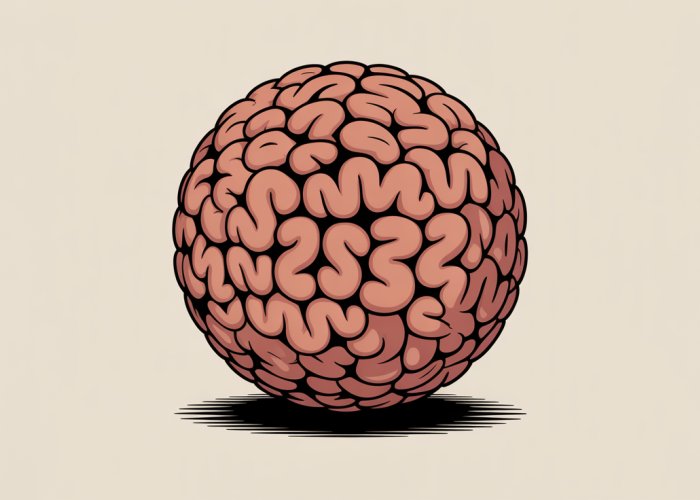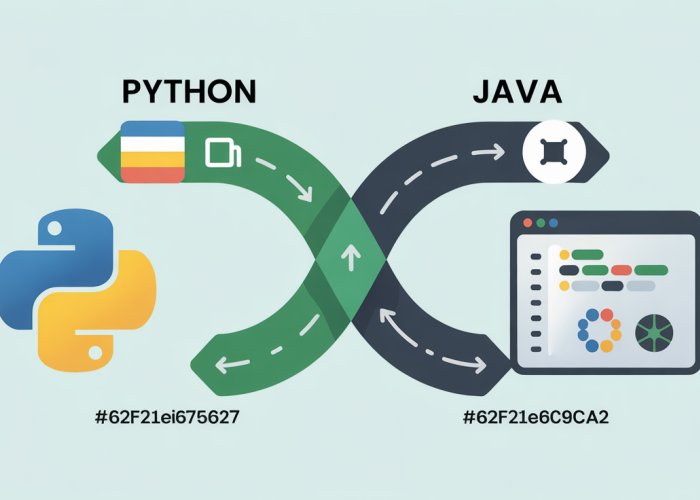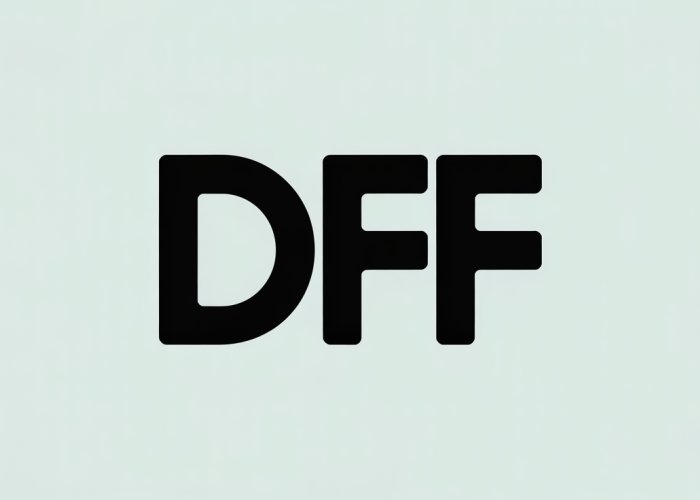The perpetuation of racist ideologies is often subtly reinforced through seemingly innocuous means, and this investigation centers on how racist jokes and their impact on racist ideologies serve as a conduit for normalizing prejudice. The academic field of Critical Race Theory provides a framework for understanding the systemic nature of racism and how humor contributes to its maintenance. Organizations like the Southern Poverty Law Center actively combat hate speech, including racist humor, by documenting its prevalence and its effects. Microaggression Theory further illuminates how these subtle forms of racism, such as racist jokes, can cumulatively impact individuals and communities. Therefore, the societal implications related to discriminatory narratives cannot be understated, considering the significant power these jokes possess in cultivating racist beliefs and behaviors, especially in relation to social normalization.

Racist jokes, often cloaked in the guise of harmless amusement, permeate various corners of society. From casual conversations to mainstream media, these forms of humor are frequently encountered, sometimes even accepted, without critical examination.
Their prevalence is a testament to the insidious nature of prejudice, which can manifest even in seemingly innocuous forms of entertainment.
The danger lies in the underestimation of their impact, a dismissal that allows these jokes to perpetuate harmful stereotypes and contribute to a climate of intolerance. This article seeks to challenge this complacency, dissecting the anatomy of racist humor and exposing its far-reaching consequences.
The Pervasiveness of Racist Jokes
Racist jokes manifest in diverse settings, underscoring their embeddedness within our cultural landscape.
They can be found in online forums, television shows, and even everyday interactions. The frequency with which such jokes are shared and consumed normalizes their presence, desensitizing individuals to their underlying prejudice.
This normalization is particularly concerning because it creates an environment where racist ideologies can thrive, often masked by humor’s deceptive veil.
Thesis: The Insidious Nature of "Harmless" Humor
This article argues that racist jokes, despite being frequently dismissed as harmless humor, contribute significantly to the reinforcement and normalization of racist ideologies, leading to tangible harm.
This harm manifests in multiple ways, from perpetuating stereotypes and discrimination to creating a hostile environment for marginalized groups.
By dissecting the structure and impact of racist jokes, this analysis aims to expose the insidious nature of this form of humor and advocate for a more critical and conscious approach to comedy and social interactions.
Racist jokes, often cloaked in the guise of harmless amusement, permeate various corners of society. From casual conversations to mainstream media, these forms of humor are frequently encountered, sometimes even accepted, without critical examination.
Their prevalence is a testament to the insidious nature of prejudice, which can manifest even in seemingly innocuous forms of entertainment.
The danger lies in the underestimation of their impact, a dismissal that allows these jokes to perpetuate harmful stereotypes and contribute to a climate of intolerance. This article seeks to challenge this complacency, dissecting the anatomy of racist humor and exposing its far-reaching consequences.
To fully grasp the nuanced arguments that follow, it’s essential to establish a shared understanding of the core concepts underpinning discussions of race and racism. Clarity in terminology is paramount to navigating the complex terrain of prejudice, discrimination, and the insidious ways they manifest in society, including within the realm of humor.
Defining the Landscape: Key Concepts in Understanding Racism
Discussions about race and racism often suffer from a lack of precision in language, leading to misunderstandings and unproductive debates. This section aims to provide clear and concise definitions of key concepts, differentiating between various forms of racism and related phenomena.
Understanding Racism
Racism is a complex and multifaceted phenomenon. It’s not simply individual acts of prejudice but a system of power structures that create and maintain racial inequality.
Racism can be understood through three primary lenses:
-
Individual Racism: This refers to overt acts of prejudice or discrimination committed by individuals based on race. This might involve discriminatory remarks, biased behavior, or acts of violence.
-
Institutional Racism: This refers to discriminatory policies and practices within institutions (e.g., education, healthcare, law enforcement) that systematically disadvantage certain racial groups. These policies may not be explicitly racist but produce unequal outcomes.
-
Systemic Racism: This is the most pervasive form of racism. Systemic racism encompasses the historical and contemporary policies, practices, and norms that perpetuate racial inequality across all societal institutions. This form of racism often operates invisibly. It reinforces existing advantages for some racial groups while creating barriers for others.
Unpacking Prejudice
Prejudice refers to preconceived judgments or biases, often negative, about individuals or groups based on stereotypes. It is an attitude, often formed without sufficient evidence or personal experience.
Prejudice can be both conscious and unconscious (implicit). Implicit biases are particularly insidious because they operate outside of our awareness. They can influence our perceptions and behaviors without our conscious control.
Decoding Discrimination
Discrimination is the action that results from prejudice. It involves treating individuals or groups unfairly based on their race, ethnicity, or other protected characteristics.
Discrimination can manifest in various forms, including:
-
Direct Discrimination: Explicitly treating someone unfairly based on their race.
-
Indirect Discrimination: Applying a seemingly neutral policy or practice that disproportionately disadvantages a particular racial group.
The Role of Stereotypes
Stereotypes are oversimplified and often negative beliefs about entire groups of people. They reduce individuals to a set of assumed characteristics and ignore the diversity within groups.
Stereotypes are often inaccurate and harmful. They can lead to prejudice and discrimination. They also perpetuate distorted perceptions of reality.
Hate Speech vs. Jokes
Hate speech is defined as abusive or threatening speech that expresses prejudice based on race, religion, ethnicity, or other protected characteristics. It is intended to incite violence, hatred, or discrimination.
While racist jokes may be offensive and harmful, they are not always legally defined as hate speech. The line between the two can be blurry. Hate speech typically involves a clear intent to incite violence or promote hatred.
Racist jokes, while often rooted in prejudice, may be presented as humor, even though they perpetuate stereotypes and can cause significant harm. It is crucial to recognize the potential for racist jokes to normalize prejudice and contribute to a climate where hate speech becomes more acceptable.
Racist jokes, as we’ve defined, are far from innocent diversions. They are cultural artifacts carrying the weight of historical oppression and societal biases. Understanding how these jokes function – their very anatomy – is crucial to dismantling their harmful effects.
Deconstructing the Joke: The Anatomy of Racist Humor
Racist humor doesn’t materialize from thin air. It’s built upon pre-existing societal structures, beliefs, and, most significantly, harmful stereotypes. To truly understand the insidious nature of this humor, we must dissect its components and expose the mechanisms by which it operates.
The Foundation of Stereotypes
At the core of every racist joke lies a stereotype. These stereotypes, often originating from historical power imbalances and misinformation, are oversimplified and generalized beliefs about entire groups of people.
Think of the caricature of the lazy minority, the hyper-sexualized [insert ethnic group here], or the intellectually inferior [insert ethnic group here]. These are not observations but preconceived notions that have been unjustly attached to entire communities.
Racist jokes then take these stereotypes and amplify them, twisting them into punchlines under the guise of humor. This act of amplification reinforces the stereotype, etching it deeper into the collective consciousness.
Implicit Bias: The Unseen Hand
While some instances of racist humor are overtly malicious, many operate on a more subtle level through implicit bias. Implicit biases are unconscious attitudes and stereotypes that affect our understanding, actions, and decisions.
These biases, often formed through exposure to societal narratives and media portrayals, can influence our perception of humor without our conscious awareness.
A joke that relies on an implicit bias may seem harmless on the surface, but it subtly reinforces negative associations and prejudices. This is especially dangerous because it allows racism to persist even among individuals who consciously reject prejudice.
The insidious nature of implicit bias is that it bypasses conscious filters, making it harder to identify and challenge.
Common Tropes and Their Underlying Messages
To illustrate how these mechanisms work, let’s examine some common tropes in racist humor:
The "Ethnic" Accent
Jokes that mock or exaggerate ethnic accents often perpetuate the stereotype that certain groups are intellectually inferior or "less civilized."
These jokes demean linguistic diversity and can create a hostile environment for individuals who speak with a non-dominant accent.
The "Cultural" Difference
Humor that pokes fun at cultural practices or traditions often portrays these practices as strange, backward, or inferior to the dominant culture.
This type of humor can lead to cultural misunderstandings and contribute to the marginalization of minority groups.
The "Affirmative Action" Joke
Jokes that suggest individuals from underrepresented groups are only successful due to affirmative action policies reinforce the stereotype that these individuals are less qualified or deserving.
These jokes ignore the systemic barriers that these individuals face and can undermine their achievements.
By analyzing these specific instances, we can see how racist humor consistently relies on harmful stereotypes and implicit biases to create a sense of amusement at the expense of marginalized groups.
Understanding the anatomy of racist humor is the first step towards dismantling its pervasive and damaging effects.
Racist jokes then take these stereotypes and amplify them, twisting them into punchlines under the guise of humor. This act of amplification reinforces the stereotype, etching it deeper into the collective consciousness. Now, let’s consider the broader consequences of this type of humor. It’s not just about a fleeting chuckle; it’s about the enduring impact racist jokes have on individuals and society as a whole.
The Ripple Effect: Assessing the Impact of Racist Jokes
The effects of racist jokes extend far beyond the immediate moment of laughter. They create a ripple effect that touches individuals and society in profound ways. This section will explore how these jokes contribute to the normalization of racism, the reinforcement of prejudice and discrimination, and the psychological and social harm they inflict.
Normalization of Racism: Desensitization Through Humor
Repeated exposure to racist jokes can desensitize individuals to the realities of racism. What starts as a seemingly harmless joke can gradually erode our sense of what is acceptable, blurring the lines between humor and hate.
The constant barrage of stereotypes, presented in a comedic context, can make racism appear less shocking and more commonplace. This normalization is particularly dangerous because it can lead to a diminished sense of outrage and a reluctance to challenge racist behavior.
Reinforcing Prejudice and Discrimination: A Climate of Intolerance
Racist jokes contribute to a climate where prejudice and discrimination are tolerated, and sometimes even encouraged. By making light of deeply ingrained biases, these jokes provide a social license for discriminatory attitudes and behaviors.
When racist jokes are met with laughter or indifference, it sends a message that prejudice is acceptable. This can embolden individuals to express their biases more openly, leading to tangible acts of discrimination in areas such as employment, housing, and education.
Psychological Harm: The Burden of Being the Punchline
For individuals from targeted groups, racist jokes are far from funny. They can inflict significant emotional and psychological harm, leading to feelings of isolation, anger, and despair.
Being the constant target of ridicule and dehumanization can erode one’s self-esteem and sense of belonging. The cumulative effect of these jokes can contribute to mental health issues such as anxiety, depression, and post-traumatic stress.
It’s important to remember that words have power, and racist jokes are a form of verbal violence that can leave lasting scars.
Social Harm: Division and Hostility
Racist jokes create a hostile environment and contribute to social division. By reinforcing stereotypes and perpetuating prejudice, these jokes undermine trust and create barriers between different racial and ethnic groups.
The constant barrage of racist humor can lead to a society where individuals feel unsafe, unwelcome, and marginalized. This can result in increased social tension, conflict, and a breakdown of community cohesion.
The effects of racist jokes extend far beyond the immediate moment of laughter. They create a ripple effect that touches individuals and society in profound ways. Now, let’s navigate the complex space where humor intersects with potential harm, especially when race becomes the subject of comedic exploration.
Navigating the Gray Area: Comedy, Context, and Ethical Considerations
Comedy, at its best, can be a powerful tool for social commentary and catharsis. However, when race enters the equation, the line between harmless jest and harmful prejudice often blurs. The ethical considerations surrounding race-based humor demand careful examination. It is paramount to recognize the potential for even well-intentioned jokes to inflict pain and perpetuate negative stereotypes.
The Fine Line Between Comedy and Harm
The question of when humor crosses the line into harmful territory is a complex one. What one person finds funny, another may find deeply offensive. The use of race as a comedic device requires a sensitivity to the lived experiences of marginalized groups.
It is vital to consider whether the joke reinforces existing power imbalances or perpetuates harmful stereotypes. Does the humor punch up, targeting those in positions of power, or does it punch down, further marginalizing already vulnerable groups? The answer to this question often determines whether the joke contributes to social healing or social harm.
Intent vs. Impact: Understanding the Disconnect
A common defense of potentially offensive humor is the assertion that "no harm was intended." While intent is certainly a factor to consider, it is ultimately the impact of the joke that matters most. A joke, regardless of the comedian’s intentions, can still inflict pain and reinforce prejudice.
This disconnect between intent and impact highlights the importance of empathy and understanding. It requires us to step outside of our own perspectives and consider how the joke might be received by someone from a different background. Someone from a group that has been historically marginalized will always have a different reading of the impact of the joke.
Microaggressions in Humor
Even seemingly innocuous jokes can contain microaggressions – subtle, often unintentional, expressions of prejudice. These microaggressions, while not overtly hateful, can contribute to a hostile environment and erode a person’s sense of belonging. Recognizing these subtle forms of prejudice is an important step towards creating a more inclusive comedic landscape.
The Weight of History: Context Matters
The historical context in which a joke is told significantly shapes its interpretation. A joke that might have been considered harmless in the past can be deeply offensive today, given our increased awareness of social justice issues and understanding of how racist tropes have affected lives.
Historical power dynamics also play a crucial role. Jokes that mock groups who have been historically marginalized are particularly problematic because they reinforce existing power imbalances. Ignoring this historical context is a form of erasure, minimizing the very real pain and suffering caused by past and present discrimination.
Therefore, engaging with race in comedy requires a deep understanding of history, power, and the potential for harm. It demands constant self-reflection and a willingness to prioritize the well-being of those who may be affected by our words.
The effects of racist jokes extend far beyond the immediate moment of laughter. They create a ripple effect that touches individuals and society in profound ways. Now, let’s navigate the complex space where humor intersects with potential harm, especially when race becomes the subject of comedic exploration.
The Slippery Slope: Connecting Jokes to Racist Ideologies
Racist jokes, often dismissed as inconsequential, can insidiously pave the way for more overt forms of racism and hate speech. This section explores how seemingly benign humor can normalize extremist views and the critical role of active opposition in preventing the spread of harmful ideologies.
From Jokes to Beliefs: The Gateway Effect
The danger of racist jokes lies not only in their immediate offensiveness but also in their potential to desensitize individuals to racist ideas. Repeated exposure to such humor can subtly shift perceptions, making prejudiced viewpoints seem more acceptable over time.
This normalization process can be particularly dangerous for young people who are still developing their understanding of the world. What starts as a joke can slowly morph into a deeply ingrained belief system.
Racist jokes, therefore, should be viewed not as isolated incidents but as potential entry points into a broader ecosystem of racist thought.
The Normalization of White Supremacy
White supremacy, with its core belief in the inherent superiority of the white race, is a dangerous ideology that has fueled countless acts of violence and discrimination throughout history. Racist jokes, even those that may seem relatively mild on the surface, can inadvertently contribute to the normalization of white supremacist ideas.
By portraying people of color as inferior or ridiculous, these jokes reinforce existing power imbalances and perpetuate harmful stereotypes. This, in turn, can create a more receptive environment for more explicit expressions of white supremacy.
It is crucial to recognize that seemingly harmless jokes can subtly reinforce the underlying tenets of white supremacy, making it more difficult to challenge and dismantle this dangerous ideology.
The Harm of Indifference: Enabling the Spread of Hate
Perhaps one of the most insidious aspects of racist humor is the silence that often surrounds it. When individuals fail to challenge racist jokes, they inadvertently create a space where harmful ideologies can flourish unchecked.
Indifference is not neutrality; it is complicity. By remaining silent in the face of racist humor, individuals signal that such behavior is acceptable, tacitly endorsing the prejudiced views that underlie the joke.
This failure to challenge racist humor can have a chilling effect on targeted groups, making them feel unwelcome, unsafe, and devalued. Moreover, it emboldens those who hold racist beliefs, encouraging them to express their views more openly and aggressively.
To combat the spread of harmful ideologies, it is essential to actively challenge racist jokes and create a culture where such humor is no longer tolerated. This requires courage, empathy, and a willingness to engage in difficult conversations.
Ultimately, dismantling racist ideologies requires a collective effort to challenge prejudice in all its forms, including the seemingly harmless guise of humor.
The insidious nature of normalized prejudice demands that we move beyond passive observation. We must become active participants in dismantling the systems that perpetuate harm. The fight against racist jokes isn’t just about silencing offensive humor; it’s about building a more just and equitable society for all.
Taking Action: Combating Racist Jokes and Promoting Social Justice
Combating racist jokes requires a multi-pronged approach. This includes actively challenging harmful humor, promoting anti-racist education, fostering empathy, and using education to dismantle racist ideologies. These steps are essential in creating a society where everyone feels valued and respected.
The Importance of Challenging Racist Humor
Remaining silent in the face of racist jokes tacitly condones them. Speaking out, even when uncomfortable, is a critical first step. It signals that such humor is unacceptable and has real consequences.
Challenging racist humor isn’t just about reprimanding the joke-teller. It’s about educating them and others about the impact of their words. It’s about fostering understanding and promoting accountability.
Promoting Social Justice Through Anti-Racist Education
Anti-racist education and awareness campaigns play a vital role in dismantling harmful stereotypes and promoting inclusivity. These programs help individuals recognize their own biases and understand the systemic nature of racism.
They provide a platform for marginalized voices and create opportunities for dialogue and learning. Effective anti-racist education empowers individuals to become agents of change in their communities.
Fostering Empathy and Understanding
At its core, racism stems from a lack of understanding and empathy. Encouraging individuals to develop a greater awareness of the experiences and perspectives of people from different racial and ethnic backgrounds is crucial.
This can be achieved through cultural exchange programs, community engagement initiatives, and honest conversations about race and identity. Listening to and amplifying marginalized voices is essential for fostering empathy and building bridges across cultural divides.
Education as a Tool for Dismantling Racist Ideologies
Education is a powerful tool for dismantling racist ideologies at their root. By providing individuals with accurate information about history, culture, and social justice, we can challenge harmful stereotypes and promote critical thinking.
This includes incorporating diverse perspectives into school curricula and promoting media literacy to help individuals critically evaluate the messages they consume. Education empowers individuals to challenge misinformation and build a more informed and equitable world.
Ultimately, the fight against racist jokes is a fight for social justice. It requires a collective effort to challenge harmful humor, promote anti-racist education, foster empathy, and use education to dismantle racist ideologies. By taking these actions, we can create a society where everyone feels valued, respected, and empowered to thrive.
FAQs About the Harmful Impact of Racist Jokes
This FAQ aims to address some common questions about racist jokes and their impact, helping to clarify why these seemingly harmless forms of humor are actually quite damaging.
Why are racist jokes considered harmful?
Racist jokes perpetuate stereotypes and normalize discriminatory attitudes. By trivializing the experiences of marginalized groups, they reinforce negative perceptions and contribute to a climate where racism can thrive. Ultimately, racist jokes and their impact on racist ideologies are significant.
How do racist jokes contribute to racist ideologies?
Racist jokes normalize prejudiced thinking. Repeated exposure to these jokes, even in a seemingly lighthearted context, desensitizes individuals to the harm they inflict and reinforces the acceptance of discriminatory views, ultimately supporting racist ideologies.
Isn’t it okay to make jokes about race if you’re part of that racial group?
While some members of a racial group might make jokes about their own experiences with racism, these jokes can still perpetuate harmful stereotypes if they are consumed by those outside of that group. Self-deprecating humor does not negate the inherent danger of racist jokes and their impact on racist ideologies.
Can a single racist joke really have a significant impact?
While a single joke might seem insignificant, the cumulative effect of countless racist jokes contributes to a broader culture of prejudice. Each joke reinforces existing biases, contributing to a climate that normalizes discrimination and ultimately fuels racist ideologies.
So, next time you hear a ‘harmless’ joke, maybe think twice about racist jokes and their impact on racist ideologies. It’s more serious than you might realize. Thanks for digging deep with me!



